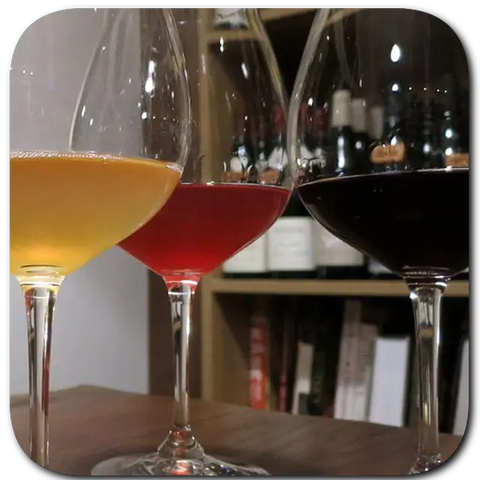What is natural wine?
You might have not heard the term before – and that’s fine! Welcome to the world of pet nats, orange wines, cloudy, yeasty, unfined, and unfiltered wines. Oh, and (almost) no sulfites!
Confused? Ok, let’s put this straight. If you’re having difficulties finding a proper description of natural wine, you’re not alone. There is just no rule or law categorizing natural wine. Different countries, importers, restaurants, bars, sommeliers, #naturalwine influencers, and amateur fans will have their own definition and limits to what counts as natural for them.
Let’s start with facts. Natural wine has existed ever since the first people started fermenting grape juice. (It might have just been called “wine” then?) So natural wine is just wine in its purest and oldest form. That’s quite straightforward so far. Old times, no junk. Wine, as we know it today, is an industrialized mass product with just as many additives as any other packaged good on the shelves. Going back only a couple of decades.

That leads us to – who’s making natural wine nowadays?
Simply put, there are winemakers who never knew anything else but natural. There are families of generations that have never made the conventional switch. There’s also a trend of first-generation winemakers reviving old vineyards and practicing biodynamic farming and low intervention viniculture in the cellar. The third category would be already existing wineries realizing climate change is upon is, we better give something back to mother earth, and there is no way out but going back to the roots, making honest, real wine in rather small quantities.
So how does natural wine really differ from the masses?
The whole story usually starts with a strong belief of a winemaker in the balance between human intervention and nature. It’s therefore inevitable that the vines are farmed according to either organic or biodynamic principles. Low intervention already starts on the fields: no machines, only hand-harvested, healthy grapes. In the cellar, fermentation starts naturally, the natural juice will not undergo any fining or filtration. Radical natural winemakers don’t even believe in temperature control. Skipping the chemistry class here, you have to be a skilled and confident viticulturist to be able to say no to sulfites. We, Natural Wine Dealers, “measure” natural wine based on the Raw Wine Fair’s guideline: 70 mg/l or lower amount of added sulfites.
Being a natural wine producer is, however, not built up of calibrating and numbers. It’s a lifestyle, a strong connection with the flora and the fauna, the understanding of soil types and weather conditions, working together with them, in favor of them. It’s aiming for the healthiest grapes: quality before quantity. Oftentimes surrendering to nature’s will. Accepting loss and hoping for prosperity. Leaving the natural grape juice in the amphora, in the barrel, or wherever they’re resting and cultivate its flavors and characteristics taken from the grape variety, climate and soil with minimum intervention. Bottled only when the wine is “ready”.
On a last note, what natural wine really is about is opening your mind. Forget all expectations and give in to new flavors and a whole new (old?) world. A world of easy-going wines and easy-going people. So just trust your senses and enjoy!


Comments (0)
There are no comments for this article. Be the first one to leave a message!